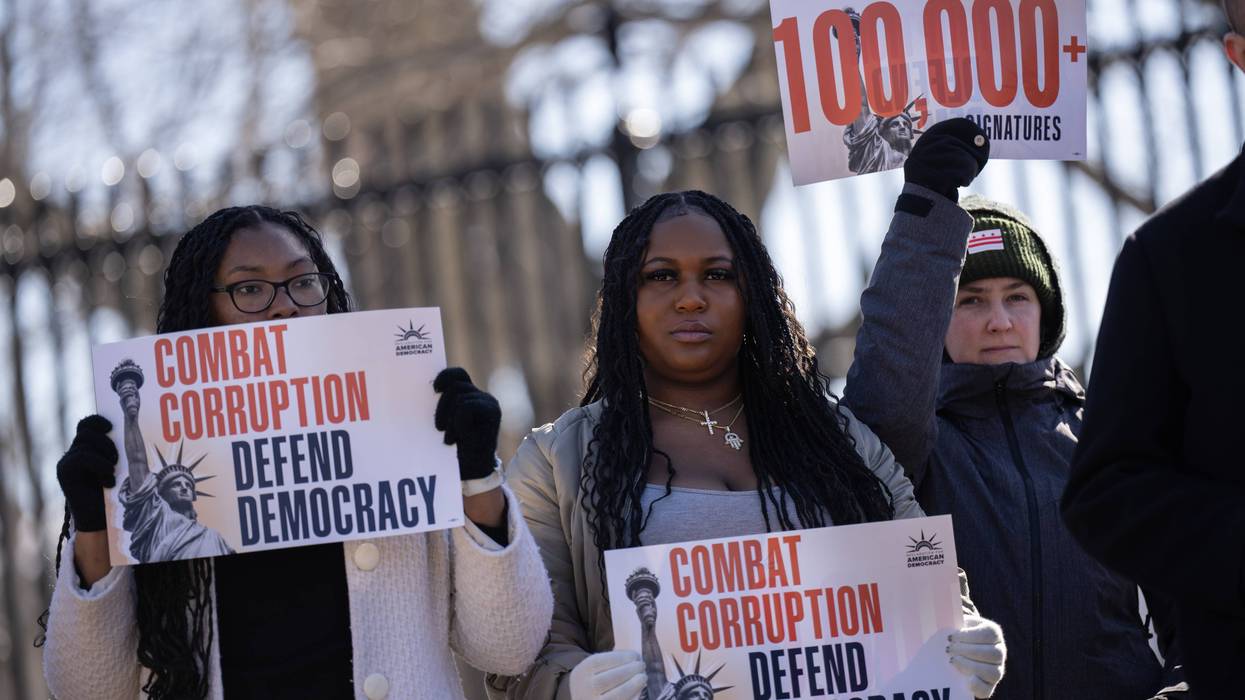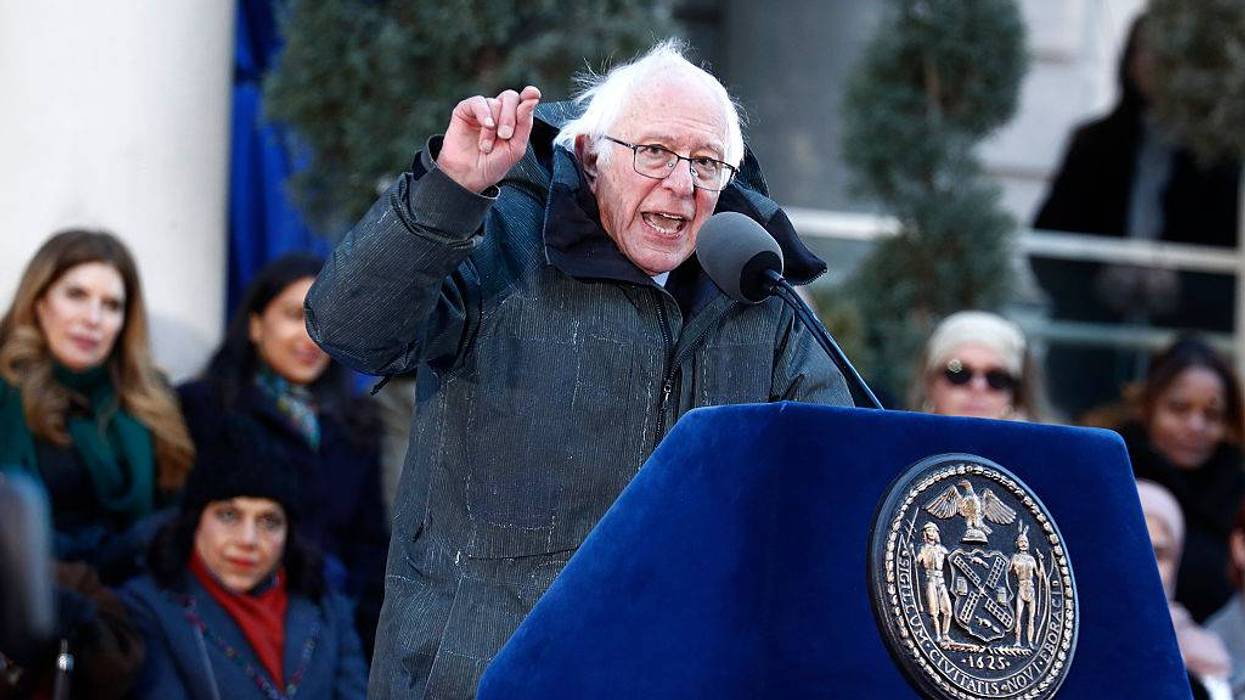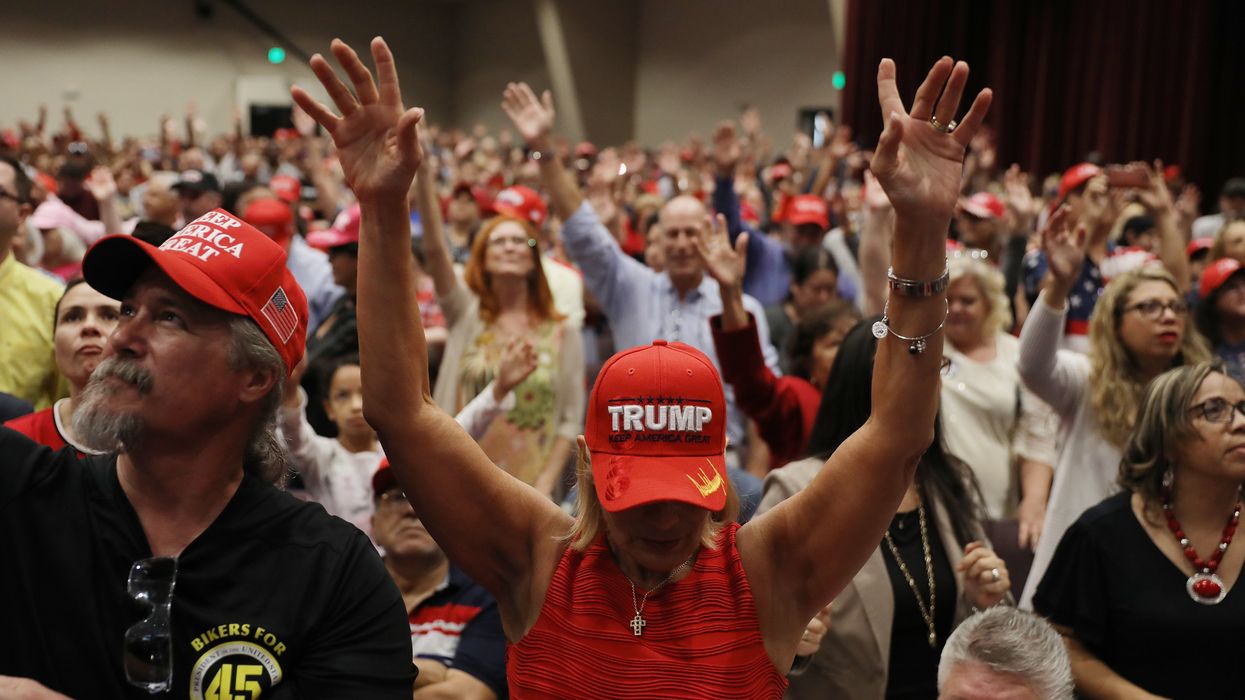16 Years After Citizens United, Critics Say Trump Exemplifies Dangers of Corporate Political Spending
Campaigners at Public Citizen say the unchecked flood of corporate money unleashed by the Supreme Court's 2010 decision "paves the way for demagogues like Donald Trump to seize power."
The consumer watchdog group Public Citizen on Wednesday highlighted how President Donald Trump not only has taken advantage of the "torrent of corporate spending" unleashed by the US Supreme Court's Citizens United ruling 16 years ago, but also is now working to make the fallout from the decision even worse.
“In 2024, the already horrifying amount of money went on steroids, as we witnessed the largest direct corporate spending on elections ever," said the group's co-presidents, Lisa Gilbert and Robert Weissman.
Corporate-funded dark money groups, nonprofits, and shell companies, which are not required by law to disclose their donors, poured more than $1.9 billion into the 2024 federal election cycle, nearly twice as much as in 2020, according to the Brennan Center for Justice. That amount of spending has climbed dramatically since 2010, with $4.3 billion spent to influence elections since the decision.
The most recent election saw spending power more consolidated into the hands of a few powerful individuals than ever before, with top Trump benefactors including Tesla and SpaceX CEO Elon Musk, investor Timothy Mellon, pro-Israel megadonor Miriam Adelson, and several others all spending more than $100 million apiece to support his candidacy.
The cryptocurrency industry likewise dumped over $245 million into the election cycle and "drove election outcomes and completely reshaped congressional policy debates, as politicians caved to crypto demands rather than face an onslaught of industry spending in the next election," according to Gilbert and Weissman.
Since Trump took office, his administration has further eroded the guardrails, allowing companies to go unchecked in their political spending.
On Wednesday, Public Citizen also unveiled a report showing that "the Securities Exchange Commission (SEC), under Trump appointee Chair Paul Atkins, acted in unprecedented ways to erect barriers to shareholders holding companies accountable for corporate political spending," most notably telling companies that they would not face objections if they fail to include political activity on shareholder statements.
Public Citizen democracy advocate Jon Golinger said this "ripped away the fig leaf by which the Supreme Court aimed to hide the shame of Citizens United."
The group noted that former Associate Justice Anthony Kennedy, who wrote the majority opinion in the case, had justified it by saying that there is "little evidence of abuse that cannot be corrected by shareholders through the procedures of corporate democracy" and that runaway corruption could be headed off by the "prompt disclosure of expenditures."
"All Americans suffer and our democracy withers when corporations and the superrich have more of a say in elections than regular voters do," Gilbert and Weissman said.
"It’s not only that corporations and the superrich are able to block overwhelmingly popular policies—meaningful cuts to drug prices, raising the minimum wage, making corporations pay their fair share in taxes, cracking down on polluters and much more—that would make our country more just, healthier, and more sustainable," they continued. "It’s also that deep frustration with a failed political system paves the way for demagogues like Donald Trump to seize power."
Across party lines, Americans overwhelmingly say that the corporate spending in elections allowed by Citizens United undermines democracy.
An October poll conducted by Issue One found that 79% of Americans said "large independent expenditures by wealthy donors and corporations in elections give rise to corruption or the appearance of corruption." This included 84% of Democrats, 74% of Republicans, and 79% of independents.
Gilbert and Weissman said, “A constitutional amendment to overturn this terrible decision is 16 years overdue.”


